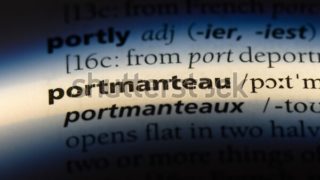こんにちは、ジェシカです。今回は、皆さんもよく知っているあいさつの表現についてです。簡単な表現ですが、いろいろなシーンで使えますよ。
There are many different ways to address the people you are talking to. The greetings vary dependent on where you are and who you are speaking to. Here are some examples:
相手への呼びかけには、たくさんの違ったいい方があります。あいさつの言い方は話している相手や場所次第で変わります。
目次
Initial greetings 最初のあいさつ
What you say to start a conversation depends on if you already know the other person or if you are meeting for the first time.
すでに知っている友人か、初めて会う人かにより、言い方も違ってきます。
- General Setting:一般的シーン
-What have you been up to? This can be used between good friends or acquaintances. It implies that you have met before.
元気にしてた?仲の良い友達か、知人に対して使うことができます。以前、会ったことがあることを意味します。
-Hey, what’s up? This is very informal and should be used between friends.
調子どう?これは、とても気さくな言い回しで、友達の間で使用されるべき表現です。
-Long time no see. This is for friends or acquaintances who haven’t seen each other in a long time.
久しぶり。しばらく会っていない、仲の良い友達か、知人に対して使います。
-Hi, how are you? This can be used between good friends, mere acquaintances, or someone you are meeting for the first time.
元気?や初めまして。仲の良い友達、ちょっとした知り合い、初対面の人に使います。
-Nice to meet you. This is only said the first time you meet someone.
初めまして。初対面の人に使います。
-Nice to see you again is used when seeing someone you have met before.
またお会いできてうれしいです。一度会ったことのある人に使います。
-I’ve heard a lot about you. This is said when you meet someone for the first time, but you share mutual friend(s).
あなたについて、いろいろ聞いてます。初対面の人に使いますが、共通の友人から事前に話しを聞いたことのある場合に使います。
- Business Setting:ビジネスシーン
-Hello, how are you? This can be used in any situation between colleagues, with a boss, or with a subordinate. You can use it with someone you’ve previously met or with someone you are meeting for the first time. When in doubt, use this phrase.
こんにちは。初めまして。同僚、ボス、部下などどんな人、状況に対しても使用できる表現です。初めて会う人、会ったこのある人にも使えます。迷ったらこの表現です。
-It’s nice to see you again. Use this with an associate that works in another department, or with someone who is a business associate of another kind but you don’t see on a regular basis.
またお会いできてうれしいです。他部署で働いている同僚や同業者など、たまに会う場合に使えます。
-It’s nice to meet you. Use this when you are meeting someone for the first time.
初めまして。初対面で使う表現です。
-Your reputation proceeds you. Use this when meeting someone for the first time. However, you have heard about this person before because of the work they have done.
噂は聞いています。初対面の同僚に使う表現ですが、仕事を通じて事前にうわさを聞いたことのある場合です。
-Thank you for inviting me. This can be used when you were asked as a guest to a company or after you were invited to give a presentation at a conference.
招待ありがとうございます。ゲストとして招かれた場合や会議でプレゼンを行う場合に使える表現です。
How to pay someone a compliment:人の褒め方
Compliments are used to express praise or to admire someone or something. You can compliment someone for how they look, who they are, their possessions, or for an achievement.
Friends compliment each other a lot. But it is also not uncommon to hear someone offer a compliment to a random stranger. Here are some examples:
褒め言葉は人や何かに対して褒めたり、称賛を表現するのに使用されます。見た目、人自身、職業、成功に対して称賛することができます。友達はお互いをたくさん褒め合います。だけど、知らない相手に対してだれかが褒めていることも耳にするのも珍しいことではありません。例を見ていきましょう。
- General Setting:一般的シーン
-Did you get a haircut? It looks great! 髪切った?すごい素敵!
-You are a great friend. あたたは最高の友達!
-Nice shoes. いい靴だね。
-You did a great job on that presentation.素晴らしいプレゼンだったよ。
- Business Setting::ビジネスシーン
-Nice work on the XYZ Company report. 報告は素晴らしかったよ。
-Congratulations on becoming partner! パートナーに祝!
-Your attention to detail does not go unnoticed.あなたの細部に渡る注意は気づかれないことはない。
How to express your appreciation:感謝を表現
When you feel gratitude toward someone for something they did, you should let that person know. These can be used for small or large acts of kindness or hard word. The simplest way is to say Thank you or Thank you for ______. You can use this between friends, acquaintances, people you don’t know, colleagues, subordinates, or superiors at work. For example:
人がしてくれた何かに対してだれかに感謝している時に、その人に知らせるべきです。小さなあるいは大きな親切な行動やがんばりに対して、これらの言葉を使うことができます。最も単純な言い回しは、Thank you oあるいはThank you for~です。友達、知り合い、知らない人にも、仕事の同僚、部下、上司だれにも使えます。
-Thank you (when a stranger holds a door open for you):ありがとう。知らない人が、あなたのためにドアを支えてくれていた時。
-Thank you for watching my kids. When a friend or neighbor takes care of your children.子供を世話してくれてありがとう。友達や隣人があなたの子供のお世話をしてくれた時。
Thank you so much. Use this when the gesture is bigger than a random act of kindness.どもうありがとう。相手の行為が偶然の行動以上だったときに使用します。
- The compliments in number 2. 次の表現です。
-Dinner was delicious. ディナーすごくおいしかった。
-This is great. これは最高です。
- Other ways to show your appreciation: 他の表現もありまよ。
-You are a true friend. あなたは本当の友達です。
-My sincere thanks. 心からのお礼です。
-You’ve been very helpful. あなたはとても頼りがあります。
-I am grateful. 感謝します。
-You are a blessing.あなたは素晴らしい。
- Words appropriate in a business setting between colleagues:ビジネスシーンで同僚たちへの言葉。
-I am indebted to you.あなたに恩があります。
-You’ve been very helpful. あなたはとても頼りがあります。
-Thank you for sharing your knowledge and experience with me.あなたの知識と経験をシェアしてくれてありがとう。
- Other ways to express gratitude in the workplace:職場で感謝を表現する。
-Thank you for giving me a chance to reach my full potential here. Said from a subordinate.ここで、最高の能力を発揮するための機会を与えくれてありがとうございます。部下からの言葉として。
-I appreciate you supporting me at the meeting.会議でのあなたのサポートに感謝します。
-I want to acknowledge everyone’s extra effort. Said from a superior or boss.皆の更なる努力を認めたい。上司からの言葉として。
-I want to thank you publicly for your hard work and dedication. Said from a superior or boss.皆のがんばりと献身に対して公にお礼を言いたい。上司やボスからの言葉。
- Showing deeper appreciation. These are statements that can be applied to any context.深い感謝を示す。どんな状況にも使える表現です。
-I am eternally grateful.感謝の気持ちでいっぱいです。
-I can’t thank you enough.感謝してもしきれません。
-I don’t even have the words to thank you.感謝の言葉も見つかりません。
-Thank you from the bottom of my heart.心からお礼いいます。
-I don’t know how I can ever repay you.どのようにして恩を返せばいいのか分かりません。
-I appreciate this more than you will ever know.あなたが今後気づく以上に感謝しています。
How to invite friends or colleagues to hang out/meet up 友達や同僚の誘い方。会う、遊ぶ
General Setting:一般シーン
Inviting friends to do something is easy. You don’t need formal invitations for most circumstances. Here are a few examples for inviting friends to hang out.
友達を誘うのは簡単です。公式な招待状はほとんどの場合、必要ありません。
-Why don’t you come over after work. 仕事終わったら、おいでよ。
-Let’s go catch a movie. 映画を見に行こうよ。
-Want to go to a baseball game? 野球見に行きたい?
-We are having a few people over on Sunday. Why don’t you come.日曜日に数人と会うから、よかったら来る?
- Business Setting: ビジネスシーン
-Let’s have a business lunch at XYZ Restaurant. XYZレストランでビジネスランチでも一緒にどう?
-Let’s discuss the details over drinks.飲みながら詳しく話そう。
Ending a conversation 会話の終わりに
It is also important to wrap up a conversation. Simple goodbyes work, as well as making plans for a next meeting.会話を締めくくるのは大切です。シンプルにさようなら、または次の約束を取ること。
- General Setting:一般シーン
-It was great seeing you. Usually used with someone you don’t see often.お会いできてよかった。あまり会う機会がない人に対して使う。
-See you later. Can be used between close friends.またね。仲の良い友達に使う。
-Let’s meet up again soon! Used with friends when you want to hang out again but don’t have immediate plans. またすぐ会おうねに。また会いたい友達に使おう。だけどすぐの計画ではない場合。
-Thanks for coming! Used after a planned meeting, such as a lunch or a party.来てくれてありがとう。ランチやパーティーなど計画していた集まりに来てくれた時に使います。
- Business Setting:ビジネスシーン
-Thank you for coming today. Used to wrap up a meeting or a conference. 今日はご参加ありがとうございます。会議を締めくくるときに使います。
-Thank you for taking time out of your busy schedule. Used to end a scheduled meeting. お忙しい中、お時間いただきありがとうございます。予定されていた会議の最後に使います。
-I would like to thank you for your warm welcome. Used when you were invited to a meeting, after your first day at a new job.暖かい歓迎にお礼を言いたいです。職場一日目、ミーティングに招待された時に。
以上、英語での簡単なあいさ表現でした。
オススメ1;
![]()
オススメ2;
![]()



